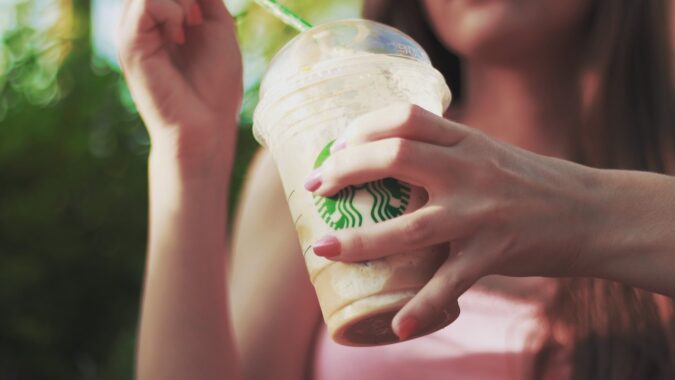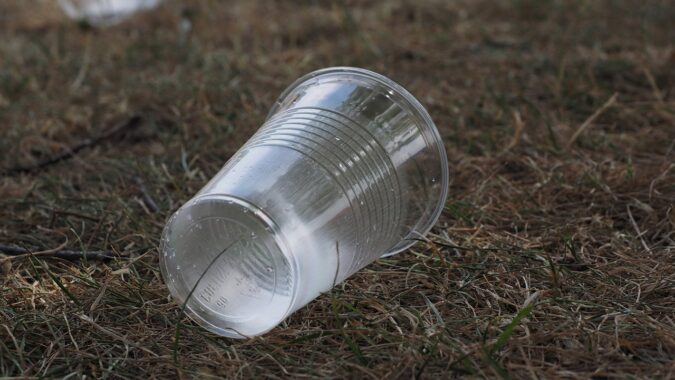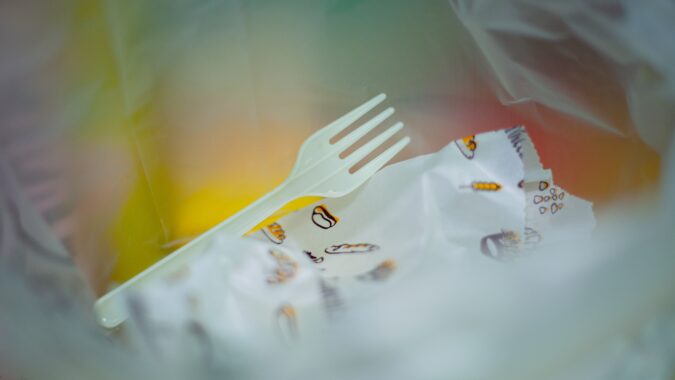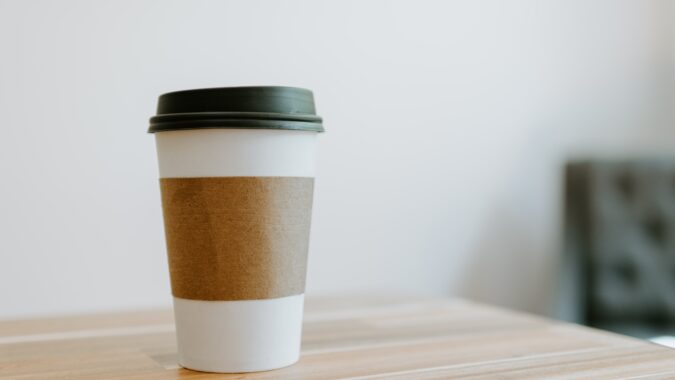The Single Use Plastic Ban – What Your Business Must Know
Single use plastic cutlery, plates, and cups are cheap and convenient, but their disposal is problematic. They don’t break down and can leach chemicals, adding to pollution if they end up in landfill. Even though most single use plastics are recyclable only 10% of single use plastic items are recycled.
To reduce this negative environmental impact the UK government is introducing a single use plastic ban in England from October 2023. This follows on from the existing plastic ban on microbeads in 2018 and single use plastic straws in 2020. And there’s already a single use plastic ban in Scotland that came into force in June 2022.
If your business in England relies on single use plastic products in any form you should be adapting to comply with the ban. To help your organisation prepare for the ban on single use plastic we’ve answered the most important questions about it and provided some useful tips to remove single use plastics from your operations.

What are single use plastics?
Single use plastics – also known as disposable plastics – are items made from plastic designed to be used once and then thrown away. They’re made from a variety of fossil fuel-based chemicals (petrochemicals) depending on the product. Common examples of single use plastics include disposable plastic cutlery, plates, and straws.
Up to 50% of plastic products are single use plastics around the world. This reflects the disposable lifestyle and culture that’s developed globally, and many industries rely on. While many single use plastics are recyclable lots end up in general waste, landfill, and as litter due to their throwaway nature.
Single use plastics aren’t biodegradable but will break down eventually. However, as they degrade it releases toxic chemicals from the additives used to create the plastic products. These can leach into the ground, water, and air, which adds to pollution levels and harms human health, wildlife, and the environment.
What single use plastics
will be banned?
The single use plastics ban in England has the official legislative title of ‘The Environmental Protection (Plastic Plates etc. and Polystyrene Containers etc.) (England) Regulations 2023’. When it comes into force it will make it an offence for businesses to supply, sell, or offer specific single use plastic items and products in England.
The ban covers single use plastic:
- Plates
- Trays
- Bowls
- Cutlery
- Balloon sticks
- Polystyrene cups (expanded and extruded polystyrene)
- Polystyrene food containers (expanded and extruded polystyrene)
Are there any exemptions to the
single use plastic ban in England?
There are a few exemptions to the England single use plastics ban for specific items:
- Single use plastic plates, bowls, and trays – you can still supply these if it’s to another business or they’re pre-supplied packaging (pre-filled or filled at the point of sale). Examples include a pre-filled salad bowl packaged in a tray, a plate filled at a takeaway counter, or a tray to deliver food.
- Single use polystyrene food and drinks containers – food or drink can still be supplied in polystyrene containers when it requires additional preparation before consumption. For example, this could mean adding water, microwaving, or toasting.
There are no exemptions for supplying single use plastic cutlery and balloon sticks.

How will the single use plastic
ban be enforced?
Local authorities will have the power to carry out inspections and ensure the new rules of the plastic ban are followed by all businesses. This includes the right to visit a shop or store, make test purchases, speak to staff, and ask to see records. Any business breaching the single use plastic ban may be issued with a fine.
The size of the fine may vary and cover the investigation costs. Complaints of breaking the law can be made to Trading Standards. The business should receive a letter detailing the offence and fine and the next steps, including the option to appeal within 28 days. Failure to comply with the notice may lead to criminal proceedings.
When does the single use plastic ban
in the UK come into force?
The single use plastic ban in the UK is being introduced across different dates for England, Scotland, and Wales:
- The single use plastic ban in Scotland has been in action since 1 June 2022.
- In England, the single use plastics ban comes into force from 1 October 2023.
- The single use plastic ban in Wales is being introduced in two phases. Most single use plastics will be banned from Autumn 2023, but the following items won’t be banned until 2024 – single-use plastic carrier bags, polystyrene lids for cups and takeaway food containers, and oxo-degradable plastic products.

Why is the UK government
banning single use plastics?
The main reason the UK government is banning single use plastics is to boost efforts to eliminate all avoidable plastic waste by 2042. Currently, in England, around 2.7 billion single-use cutlery items (mostly plastic) and 721 million single-use plates are thrown away every year. This ban aims to wipe out such waste.
Plastic cutlery was in the top 15 most littered items in the UK by count in 2020. And according to the European Commission, the 10 most common single-use plastic products found on European beaches account for 70% of all marine litter in the EU (alongside fishing gear).
Banning single use plastics means businesses will need to use and offer sustainable alternatives. Many single use plastics are tricky to recycle, so these alternatives should be reusable, compostable, or easier to recycle. The ban should hopefully reduce the amount of plastic waste disposed of improperly (such as in landfill and littering).
This may have a positive knock-on effect to help reduce pollution levels and carbon emissions related to such plastic waste disposal and recycling. The UK government has seen successes with previous bans and restrictions, like the carrier bag charge cutting sales by more than 97% in major supermarkets and hopes to replicate such results with this new plastic ban.
Who will the single use
plastic ban affect?
The single use plastic ban affects any business that sells or supplies disposable plastic items covered by the new ban. This includes selling and supplying any of the banned single use plastics online and over the counter (including items from new and existing stock). The food services, retail, and hospitality industries will be particularly impacted.
Some of the main businesses the government ban on single use plastic will affect include:
- Takeaways – no more polystyrene containers to serve up takeaway food
- Restaurants – you won’t be able to provide takeaways of leftovers in single-use plastic containers
- Bakeries – single use plastic coffee cups, plates, and bowls will be banned
- Shops – selling disposable plastic cutlery and other items covered by the ban
- Airports – shops and food outlets won’t be allowed to use disposable plastic cutlery, cups, plates, and bowls
How to prepare your business
for the ban on single use plastic
Such a big change and the potential penalties for breaching the plastic ban in the UK means businesses need to be ready for the new rules. Companies in every industry must be compliant with the rules, whether you only provide a few disposable plastic spoons to customers in an ice cream café or regularly use polystyrene food containers.
There are a few things your business should do to prepare for the ban on single use plastic properly:
- Check your stock for disposable products – do an inventory of all single use plastic products your business still has and plan to use, sell, or donate them all before 1 October 2023.
- Find alternatives to single use plastic items – explore reusable, compostable, and biodegradable alternative solutions to the single use plastic items you currently use. Speak to your existing suppliers to see if they can offer an alternative and search for sustainable suppliers.
- Assess the costs – switching to different products and new suppliers will affect the costs to your business. Analyse how this fits with your budget and whether it’s the best choice.
- Consider the consumer – ensure whatever alternatives you source are still of a high quality that will impact your consumers as little as possible. Especially as most single use plastic items are used for food and drink, you’ll need to ensure the alternatives you use still meet all relevant food safety standards.
- Stop ordering new single use plastics – avoid an excess of single use plastic cutlery, plates, and containers by cancelling all orders as soon as possible.
- Introduce plastic recycling bins – ensure you can recycle all types of plastic waste your business produces with an effective plan in place and the right number and sizes of bins.

Arrange plastic recycling
for your business
The ban on single use plastic will benefit the environment, but many businesses and homes continue to create plastic waste. Your organisation must play its part with a strong plastic recycling program in place. At Business Waste we provide free plastic recycling bins – you only pay for collection.
This helps companies across all industries separate plastic waste from other rubbish to ensure as much as possible is recycled and reused. Bin deliveries and collections are available anywhere in the UK. Get your free quote for plastic waste collection today – call 0800 211 8390 or contact us online.
Have your waste collected
Get a fast FREE quote for your waste collection 0800 211 83 90
- Free quote within 1 hr
- Any type of waste
- FREE bins and delivery
- We cover all of the UK